The Ultimate Guide to Feng Shui Plants for Home and Office (Australia & Canada)
Hello, seekers of harmony and green enthusiasts in Australia and Canada! In our quest for a balanced life, we often look to ancient practices for modern solutions. The art of Feng Shui, which focuses on harmonizing our environment, offers a powerful, beautiful, and natural way to do just that: through the use of plants.
This isn’t just about placing a pot in a corner. It’s about intentionally choosing and placing the right Feng Shui plants to attract positive energy, luck, and prosperity into your home and office. This guide will take you far beyond the basics, providing a comprehensive look at the best plants for good fortune, where to place them, and why they work. Let’s transform your space into a sanctuary of positive energy.
In Feng Shui, plants are living beings that bring life force, or “Chi,” into a space. They represent the Wood element, which symbolizes growth, vitality, and new beginnings.
- Increase Positive Energy: Plants with soft, rounded leaves and upward growth are thought to generate positive energy and bring good fortune.
- Filter Negative Chi: Certain Feng Shui plants can absorb stagnant or negative energy, acting as natural purifiers for both the air and the environment’s energetic flow.
- Bring Balance to Elements: Strategic placement of plants can balance other elements in your space, creating a harmonious and calming atmosphere.
Key Principles of Feng Shui Plant Placement
Before we choose our lucky plants, let’s understand the fundamental principles. Placement is everything!
- Location is Key: Place plants in areas where you want to promote specific types of energy (e.g., wealth, health, relationships). We’ll cover specific corners of the Bagua Map later in this guide.
- The “Less is More” Rule: Avoid overcrowding. A few well-placed Feng Shui plants are more effective than a chaotic jungle.
- Keep them Healthy: A thriving, healthy plant represents vibrant, positive energy. A wilting or dying plant, on the other hand, represents stagnant and negative Chi. Your Feng Shui plants must be well-cared for! (Internal Link: Houseplant Care for Beginners: Guide to Green Thumbs)
10 Top Feng Shui Plants to Bring You Luck and Prosperity
Ready to find your green companion for good fortune? Here are 10 of the best Feng Shui plants that are widely available in Australia and Canada, each with a unique purpose.
1. Money Tree (Pachira aquatica) – The Classic Wealth Magnet
- Symbolism: Its braided trunk is said to trap good fortune, and its five-lobed leaves represent the five elements, bringing balance and abundance. A must-have for attracting financial luck.
- Placement: The Southeast (wealth corner) or East (health and family).
Personal Note: My Money Tree sits proudly in my home office. It’s a beautiful reminder of growth, both for my business and my personal life, a true symbol of what Feng Shui plants can represent.
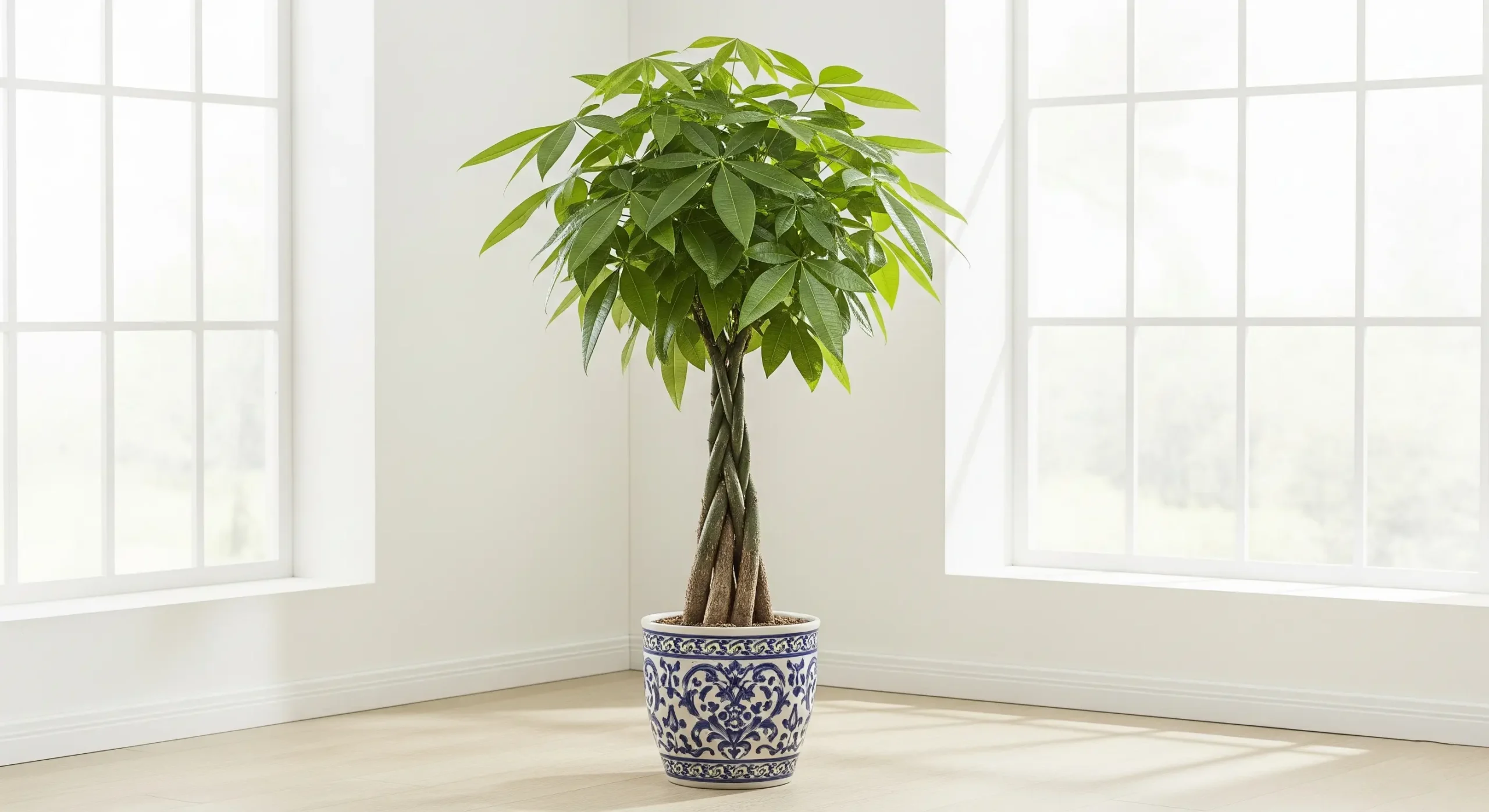
2. Jade Plant (Crassula ovata) – The Symbol of Growth & Renewal
- Symbolism: Its round, coin-like leaves symbolize wealth and good fortune. Its resilience and slow growth are a metaphor for enduring friendship and steady financial growth.
- Placement: Near the entrance of your home to welcome good fortune, or in the wealth corner.
Pro Tip: Jade Plants are a popular and meaningful gift for housewarmings or new beginnings, representing wishes for prosperity and long-lasting friendship.
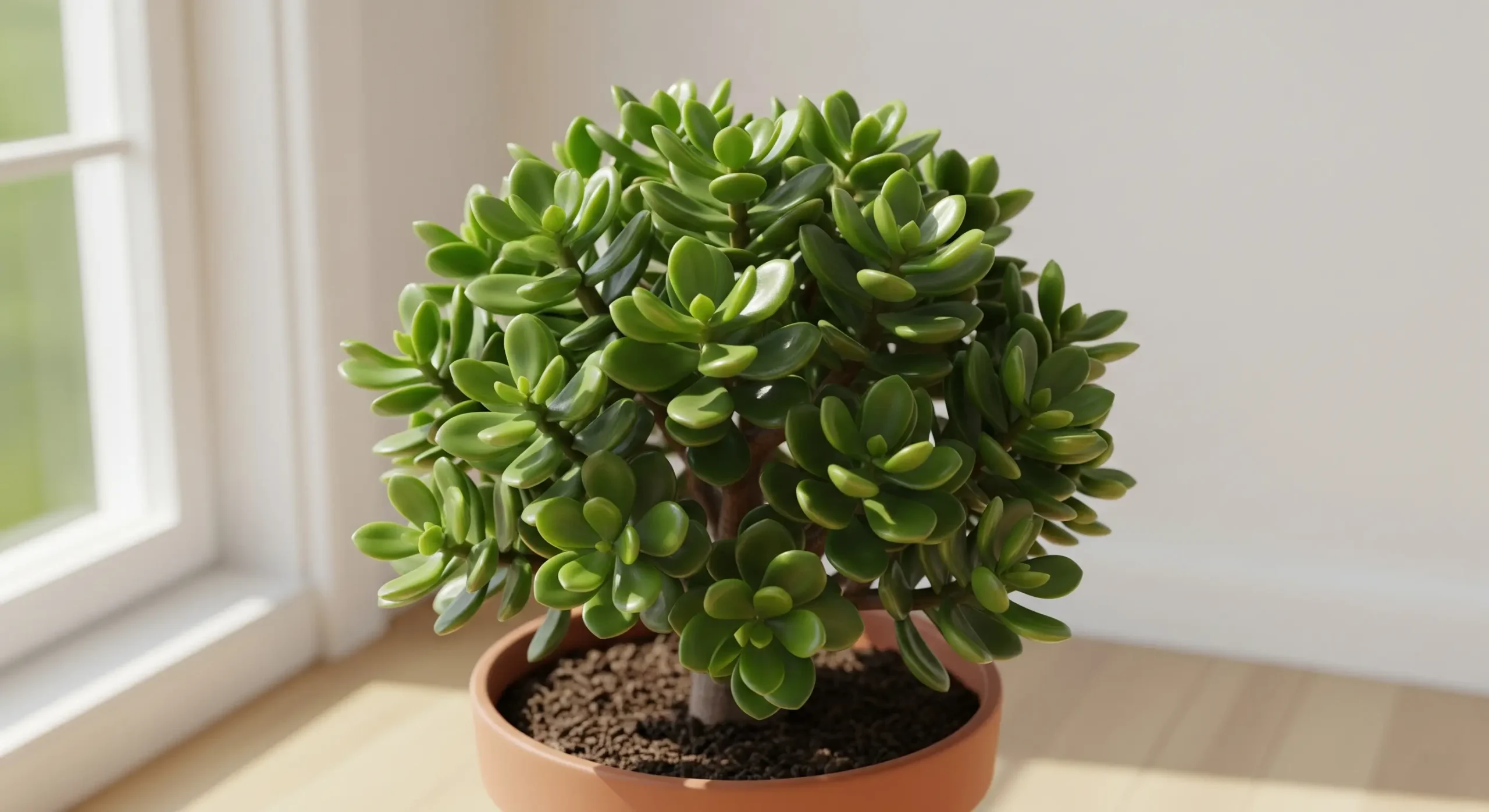
3. Lucky Bamboo (Dracaena sanderiana) – Fortune in Every Stalk
- Symbolism: A classic Feng Shui plant for attracting good fortune. The number of stalks has specific meanings (e.g., 3 for happiness, 5 for wealth, 9 for great luck). (Source: ThoughtCo – Lucky Bamboo Meaning)
- Placement: The wealth corner, on an office desk, or in the East for health.
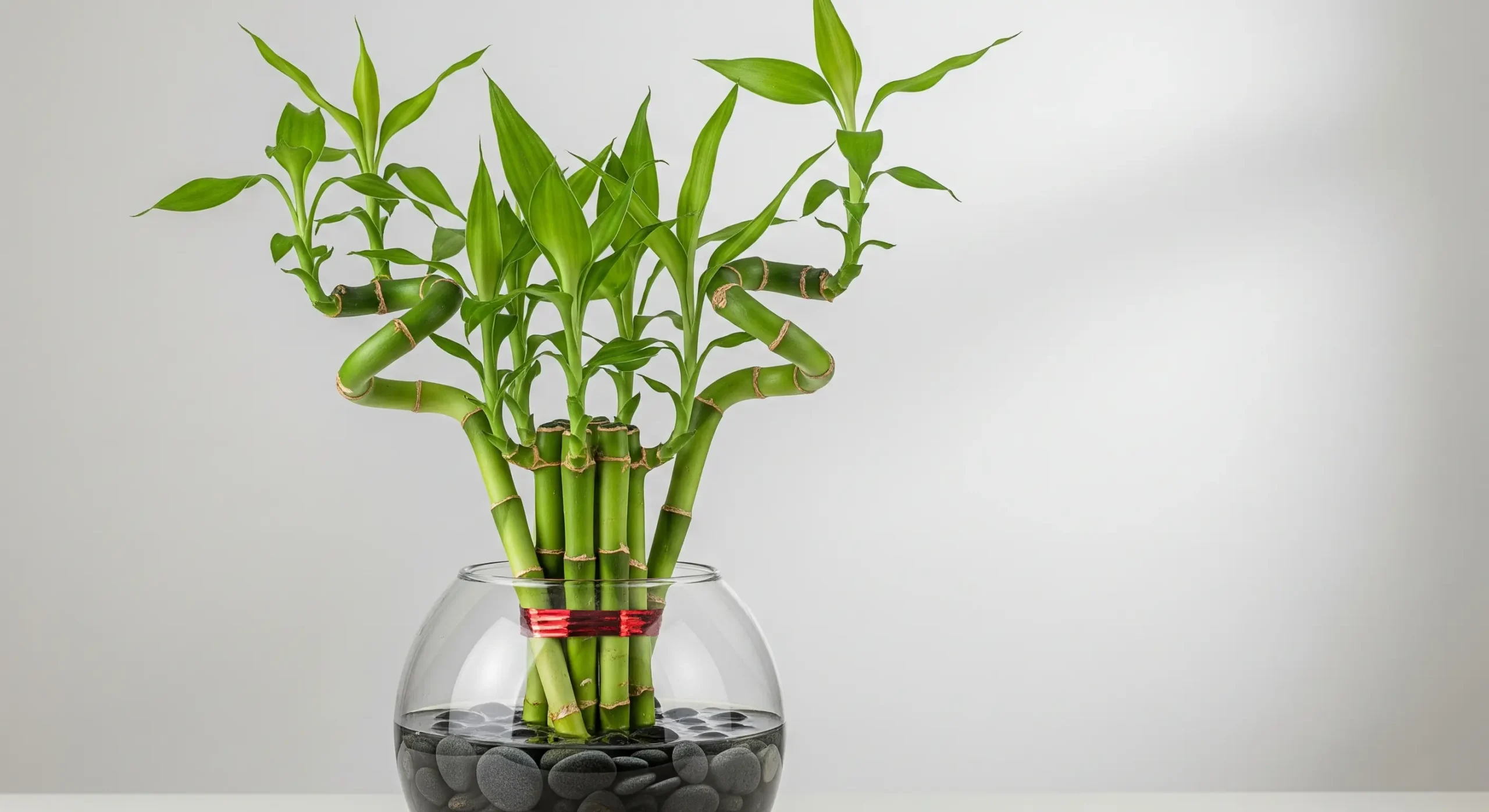
4. Snake Plant (Sansevieria trifasciata) – The Protector & Purifier
- Symbolism: In Feng Shui, its strong, upright leaves are believed to act as a protective shield, warding off negative Chi. It’s also a powerful air purifier, enhancing positive energy by improving air quality. (Source: The Spruce – Snake Plant Feng Shui)
- Placement: In corners or near the front door to protect against negative energy. Avoid bedrooms. (Internal Link: Air-Purifying Plants: Your Green Shield for a Healthy Home)
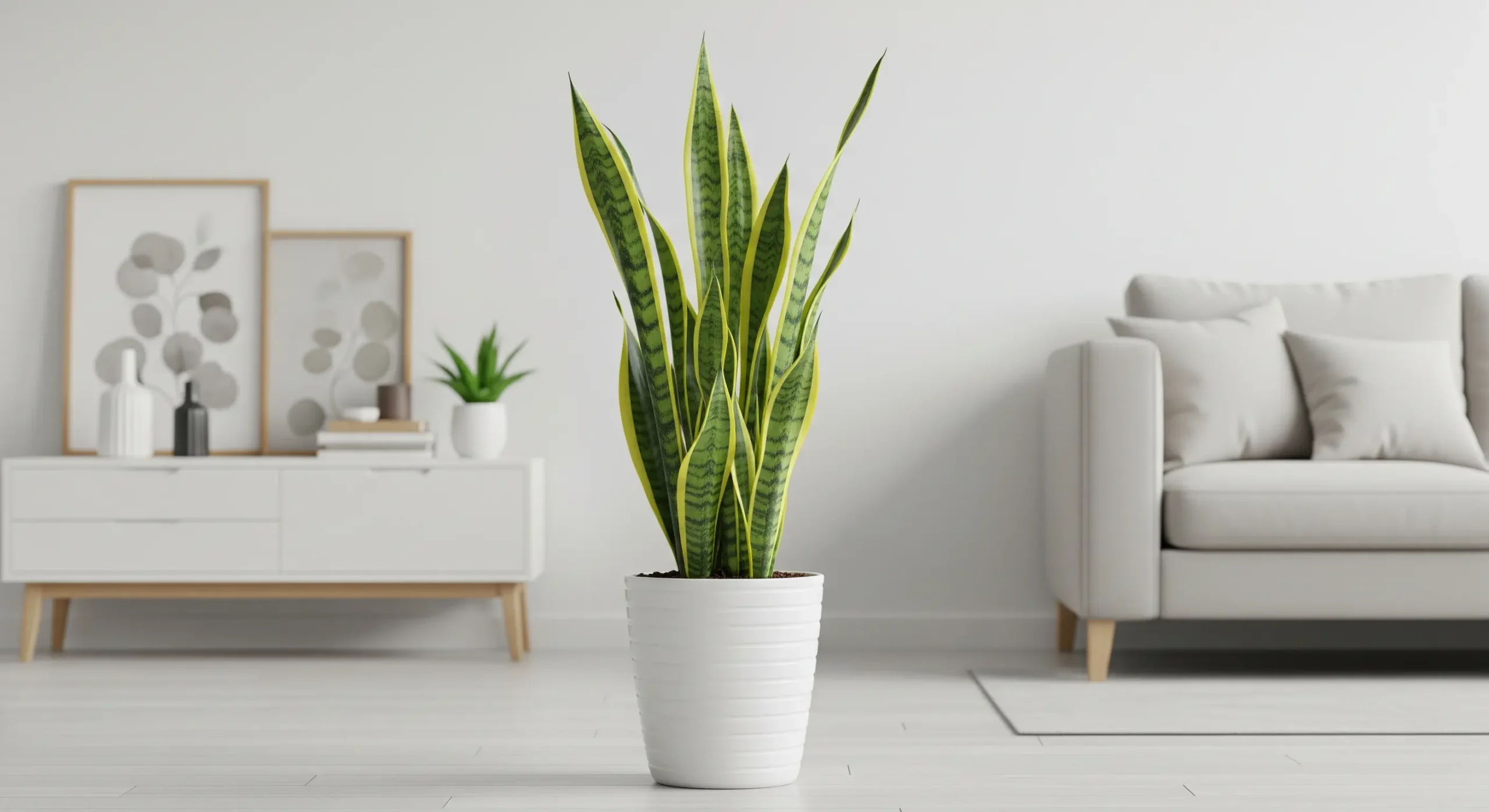
5. Peace Lily (Spathiphyllum) – The Bringer of Harmony
- Symbolism: The Peace Lily, as its name suggests, is a symbol of peace, purity, and harmony. It’s excellent at balancing negative energy in a space, making it perfect for calming troubled areas.
- Placement: Bedrooms, living rooms, or any area where peace is needed.
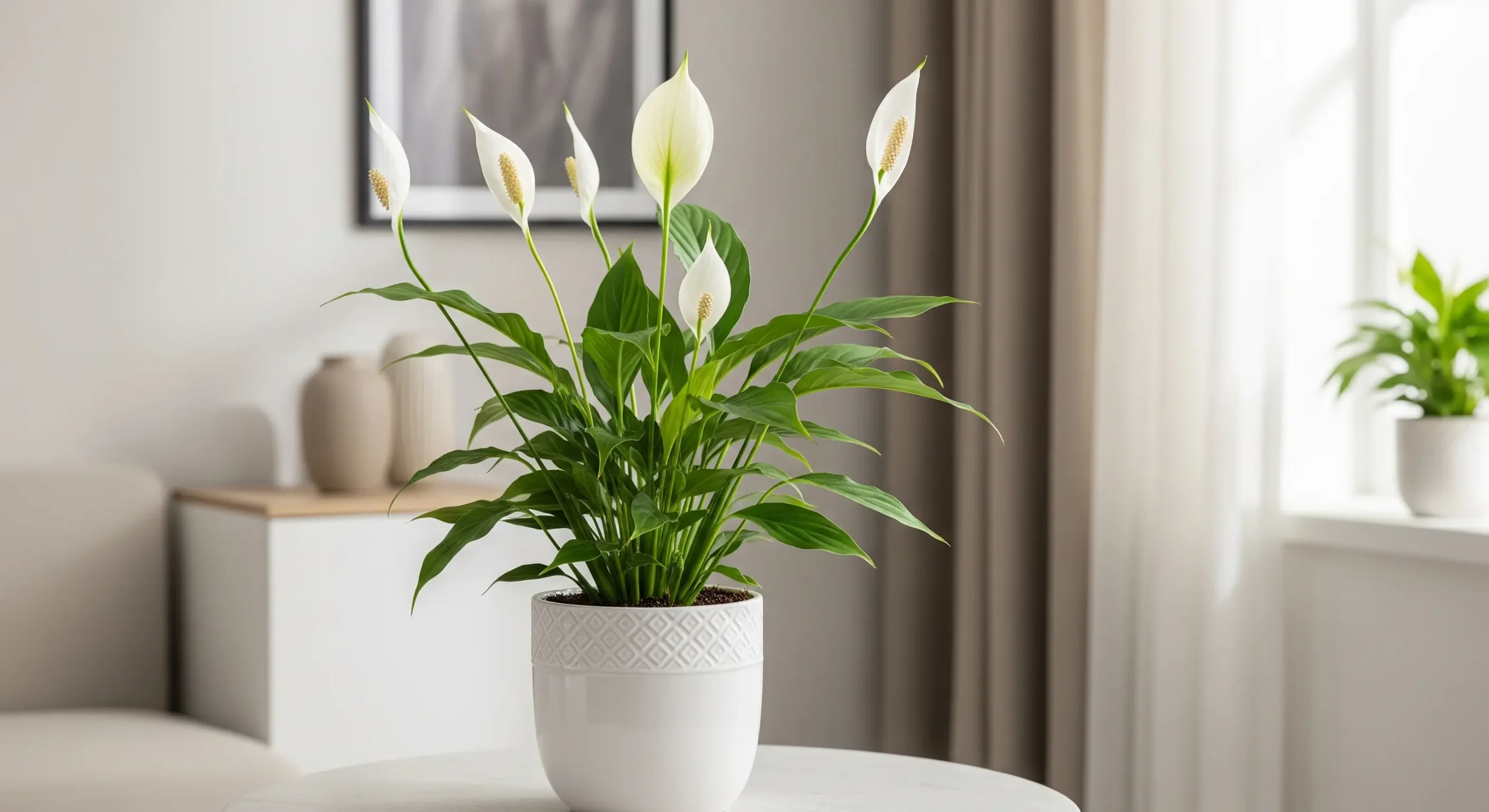
6. Golden Pothos (Epipremnum aureum) – The All-Rounder of Good Fortune
- Symbolism: Pothos is believed to be a fantastic purifier of negative energy and brings good luck. Its long, trailing vines symbolize growth and abundance. It’s an easy-care classic that’s perfect for all skill levels.
- Placement: Anywhere you feel there is stagnant energy, such as a dull corner, or on shelves to soften hard edges.
Pro Tip: Golden Pothos is one of the easiest Feng Shui plants to grow, so it’s a great choice for beginners looking to start their journey.
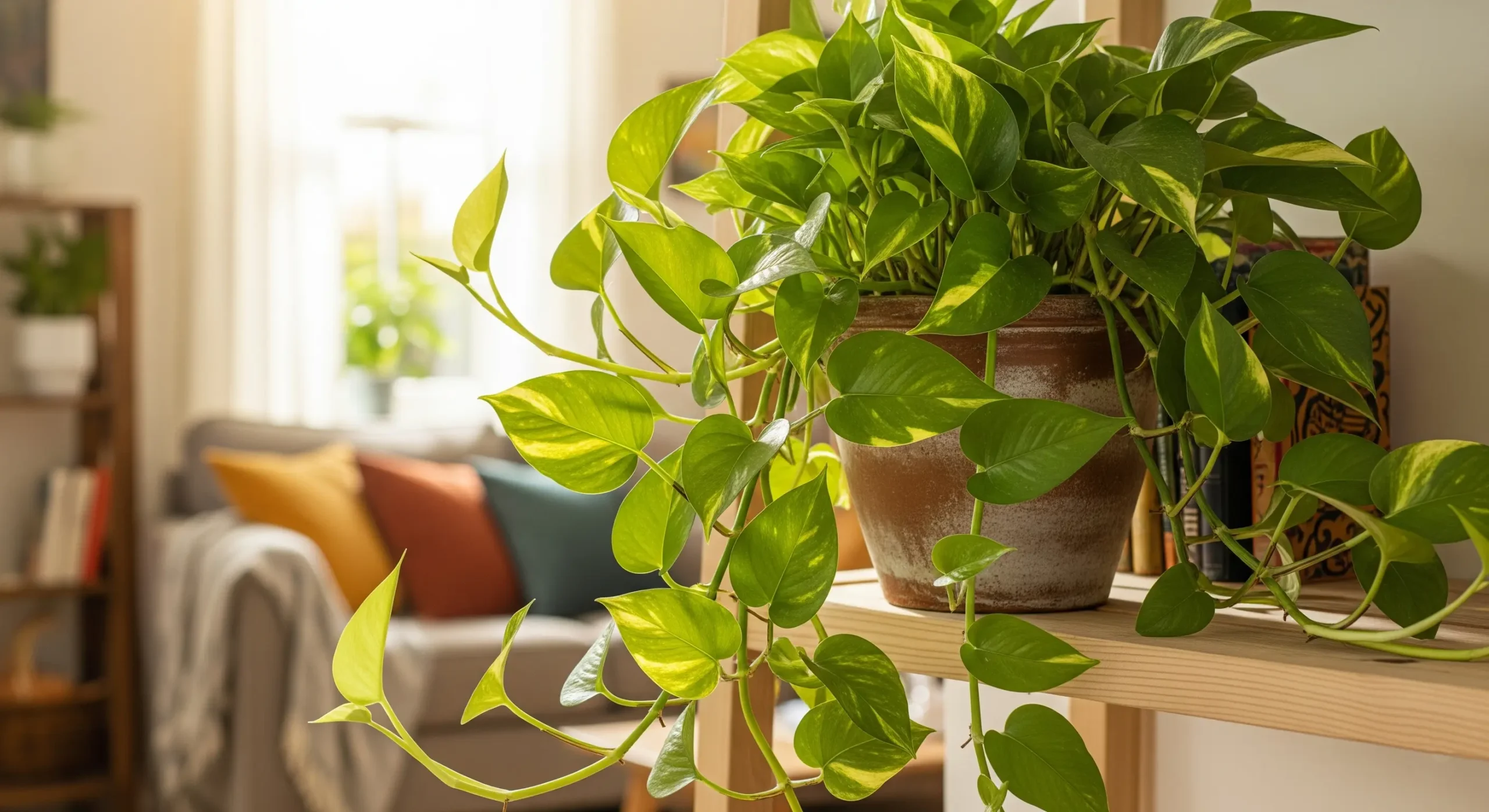
7. Orchids (Orchidaceae): The Symbol of Love and Fertility
- Symbolism: Orchids represent love, beauty, elegance, and fertility. Their delicate, long-lasting blooms are said to attract positive relationships and good fortune in romance. (Source: FTD.com – Orchid Symbolism)
- Placement: The Relationship Corner (Southwest) of your home or living room.
Personal Note: I received a stunning white orchid as a gift and the blooms lasted for months. It truly felt like a beautiful symbol of enduring love, and I’ve kept it in my relationship corner ever since.
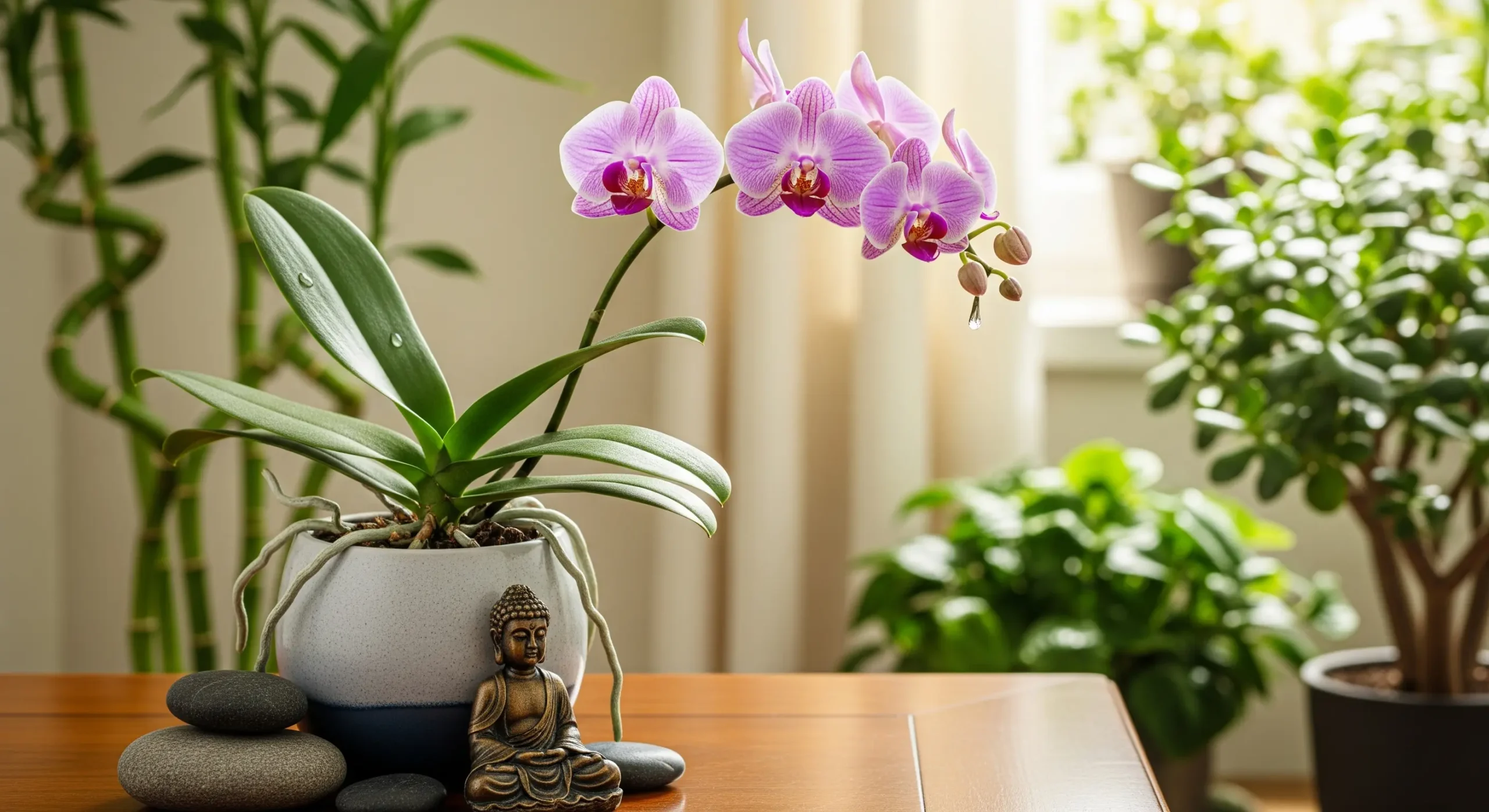
8. Citrus Trees (Citrus spp.): The Purifying & Abundant
- Symbolism: Citrus trees, such as dwarf lemons or oranges, are believed to bring prosperity, luck, and an abundance of wealth. Their vibrant fruits symbolize gold and are said to ward off bad energy.
- Placement: Near the entrance or in the wealth corner. (Internal Link: Mastering Easy Container Gardening: Transform Any Small Space)
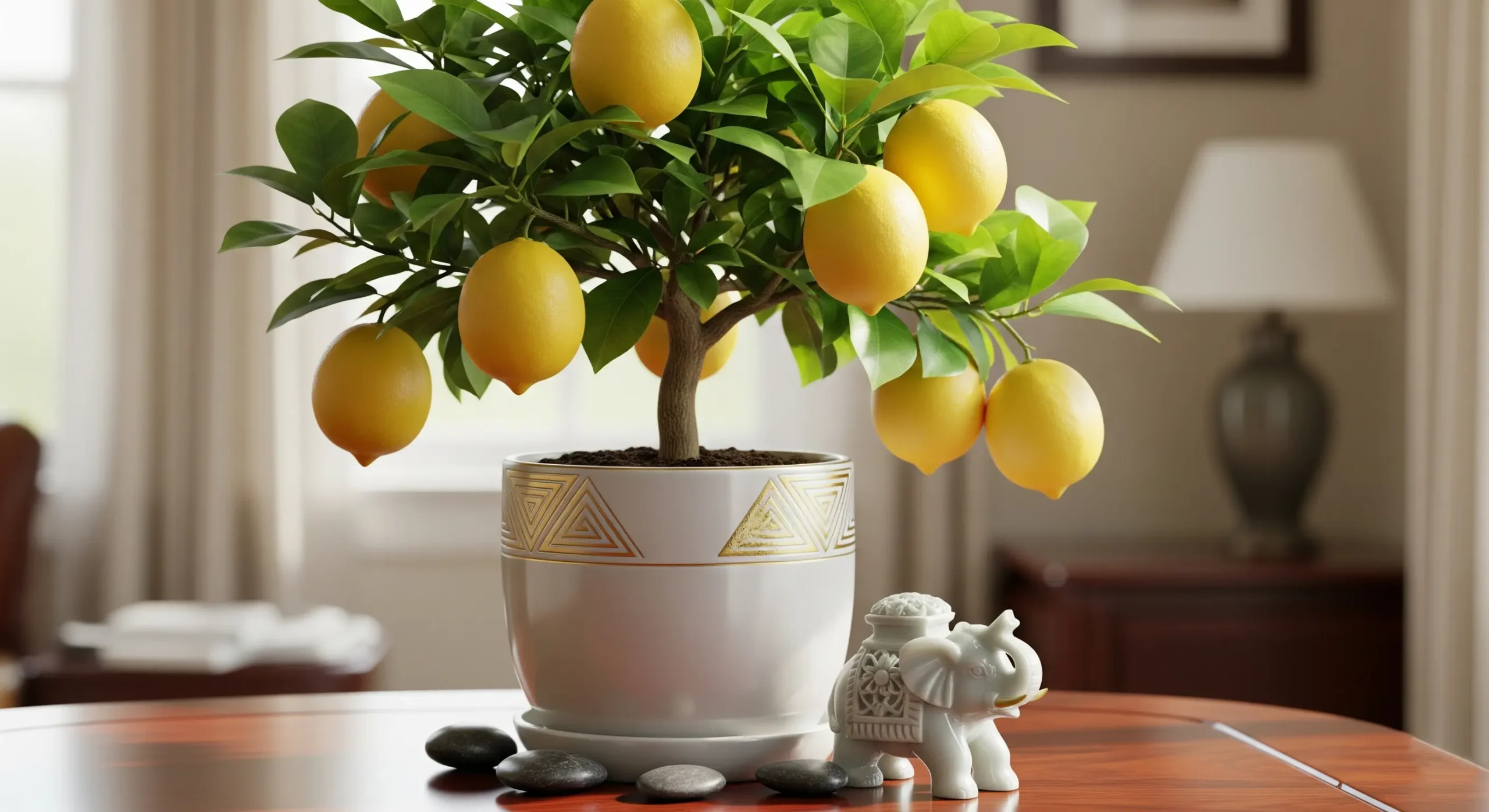
9. Chinese Evergreen (Aglaonema): The Auspicious Energizer
- Symbolism: This plant is considered highly auspicious, representing good fortune, prosperity, and a long life. It’s known for its ability to energize a space and bring positive vibes, making it a great choice for a home or office.
- Placement: Any area that feels dull or needs a boost of energy, like a hallway or living room corner.
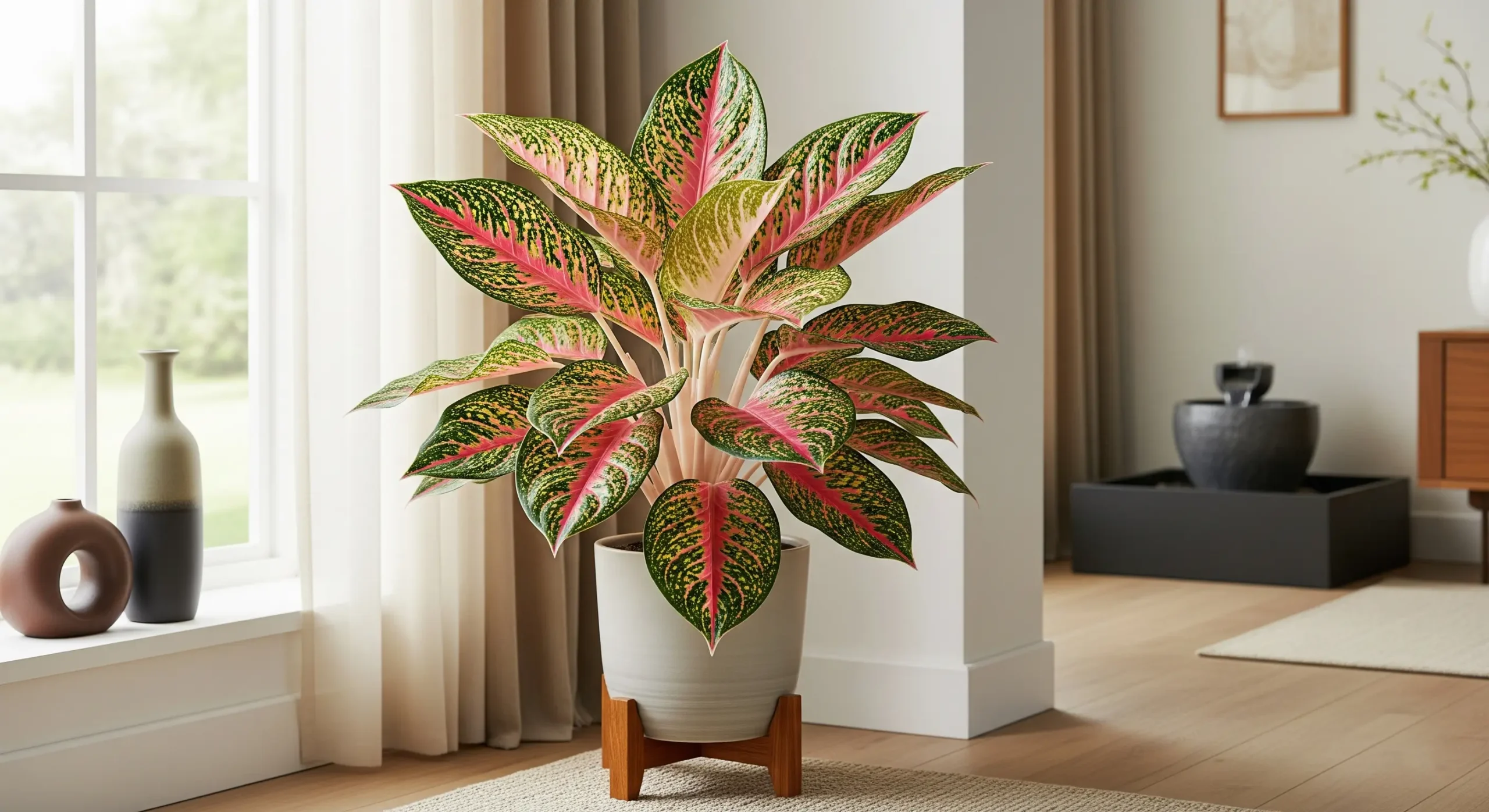
10. Boston Fern (Nephrolepis exaltata): The Cleanser of Stagnant Energy
- Symbolism: With its dense, feathery foliage, the Boston Fern is believed to be a powerful cleanser, not just of the air, but of stagnant energy. It helps to improve the flow of Chi in an area, bringing freshness and vitality. (Source: Gardening Australia – Boston Fern Care)
- Placement: Bathrooms or corners that feel neglected and need a boost of clean energy. (Internal Link: Air-Purifying Plants: Your Green Shield for a Healthy Home)
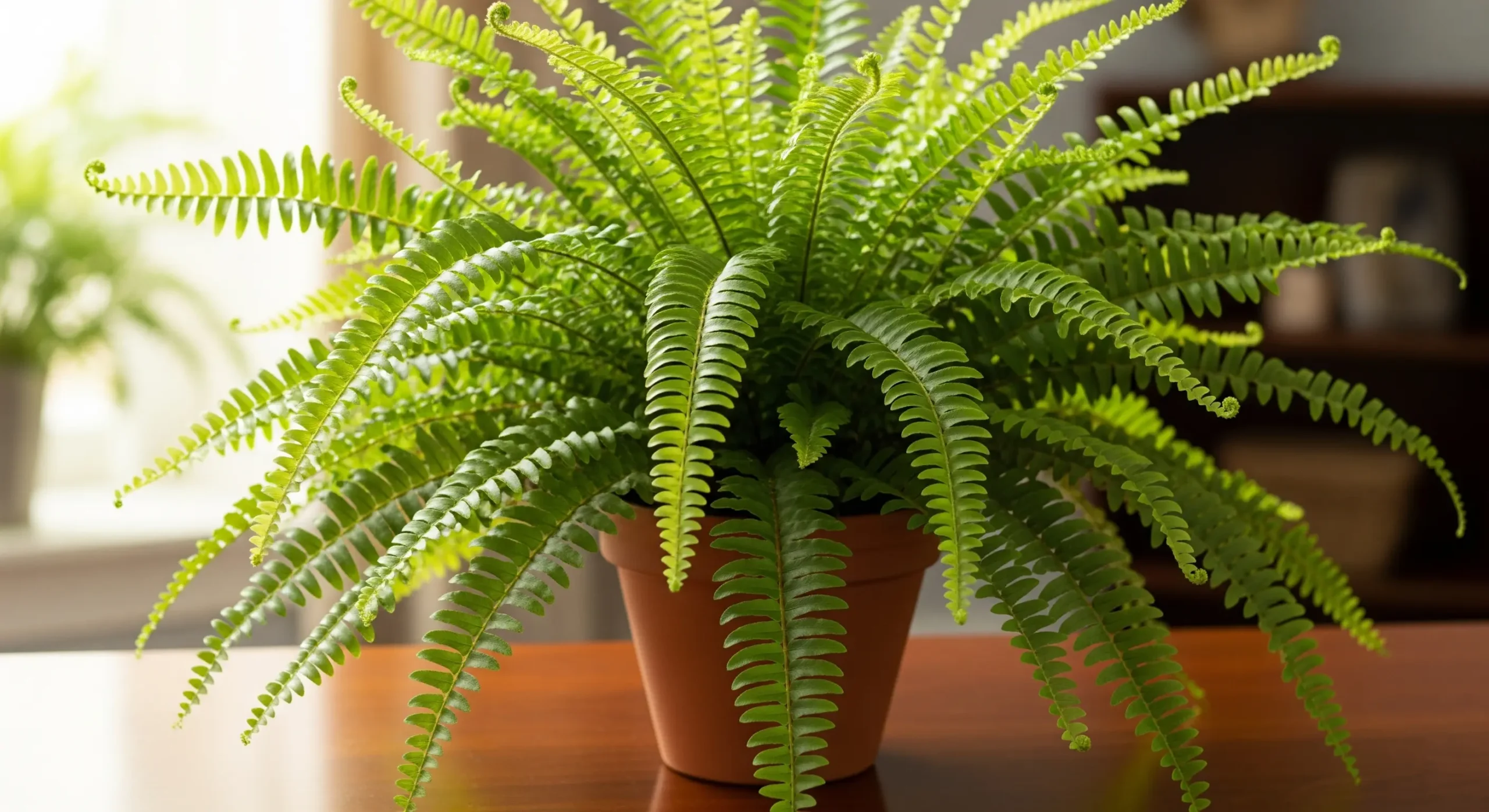
Where to Place Your Feng Shui Plants for Maximum Benefit
Strategic placement is everything when it comes to Feng Shui plants. Here’s a quick guide to placing them correctly using the Bagua Map (the Feng Shui energy map).
-
The Wealth Corner (Southeast)
This area governs wealth and prosperity. Placing a Money Tree or Jade Plant here can activate and attract financial abundance.
-
The Health & Family Corner (East)
The East governs health and family harmony. A vibrant Feng Shui plant like the Peace Lily or Lucky Bamboo can bring vitality and balance to this area.
-
The Relationship Corner (Southwest)
This corner is for love and relationships. A beautiful Orchid or any plant with soft, rounded leaves can enhance connection.
-
The Fame & Reputation Corner (South)
The South represents your fame and public reputation. Placing a tall, healthy Feng Shui plant here, like an Orchid or Citrus Tree, can help boost your visibility and success.
Feng Shui for a Thriving Home: What to Avoid
To ensure your Feng Shui plants bring positive energy, here’s a quick guide on what to avoid:
- Dying or Unhealthy Plants: A sick plant represents stagnant or negative energy. Always remove or revive a struggling plant. This is the golden rule of Feng Shui plant care. (Internal Link: Houseplant Care for Beginners: Guide to Green Thumbs)
- Sharp, Spiky Plants in Certain Areas: While a Snake Plant is a great protector, its spiky leaves can be perceived as aggressive energy. Avoid placing them in areas where people gather or in the relationship corner.
- Overcrowding: Too many plants in one space can block the flow of Chi. The “Less is More” rule applies here. (Source: The Spruce – Feng Shui Plant Placement)
Feng Shui Plants Q&A: Your Top Questions Answered
Are fake plants good for Feng Shui?
No, fake plants are not recommended in Feng Shui. Living plants bring vibrant, positive Chi (life energy) into a space, while fake plants, lacking this energy, can attract stagnant energy. It’s always better to choose a low-maintenance live plant over a fake one for true Feng Shui benefits.
Can I put Feng Shui plants in my bedroom?
Yes, you can put Feng Shui plants in your bedroom, but with care. Plants like the Peace Lily and Lavender are excellent choices for bedrooms as they promote calm and purify the air. Avoid sharp, spiky plants like the Snake Plant in your bedroom as their strong energy can be overwhelming and disruptive to a restful sleep.
How many plants are best for Feng Shui?
In Feng Shui, quality is more important than quantity. One to three healthy, well-placed Feng Shui plants are more effective than a dozen cluttered, struggling plants. The number five is often considered lucky, representing the five elements.
What should I do if my Feng Shui plant dies?
A dying or dead plant represents stagnant and negative energy. It’s crucial to remove or revive it as soon as possible. If a **Feng Shui plant** dies, it’s a sign that the energy in that area might be out of balance. Simply replace it with a new, healthy plant to restore the positive Chi.
Conclusion: Cultivating Good Fortune with Your Plants
Integrating Feng Shui plants into your home is a beautiful and intentional way to enhance positive energy, attract luck, and cultivate a sense of peace. It’s a practice that empowers you to shape your environment and, in turn, your well-being.
By choosing these plants and placing them with intention, you are not just decorating your space; you are actively inviting prosperity, harmony, and joy into your life.
What is your favorite Feng Shui plant, and where in your home do you plan to place it for good fortune? Share your thoughts and questions in the comments below!


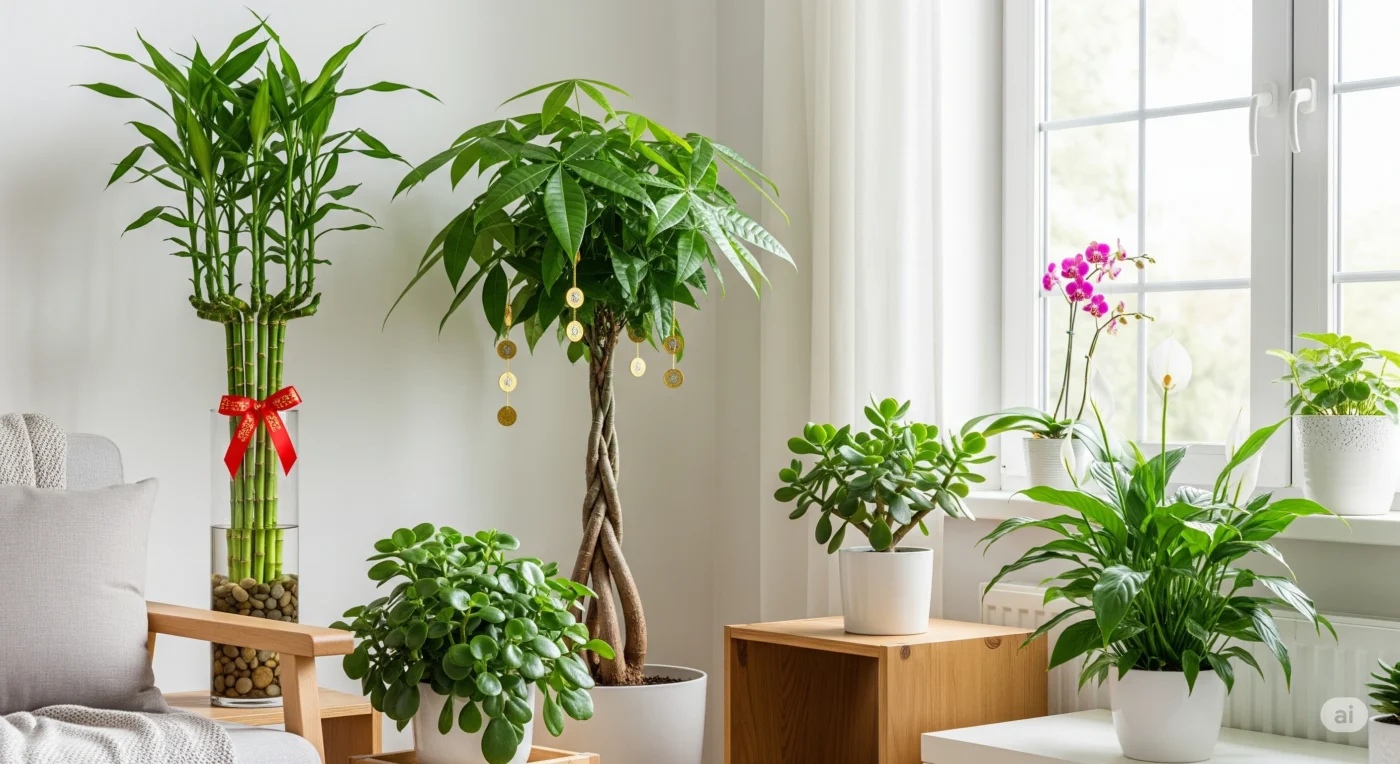
Pingback: Boost Calm: 5 Easy Indoor Plants for Stress Relief (AU/CA)
Pingback: Plant Gifts: Perfect, Meaningful & Sustainable (AU/CA)
Pingback: Nurturing Your Soul: 10 Best Indoor Plants for Mental Health & Emotional Well-being (Australia & Canada) - zenplanttherapy
Pingback: 20+ Creative Indoor Plant Styling Ideas (AU/CA) - zenplanttherapy